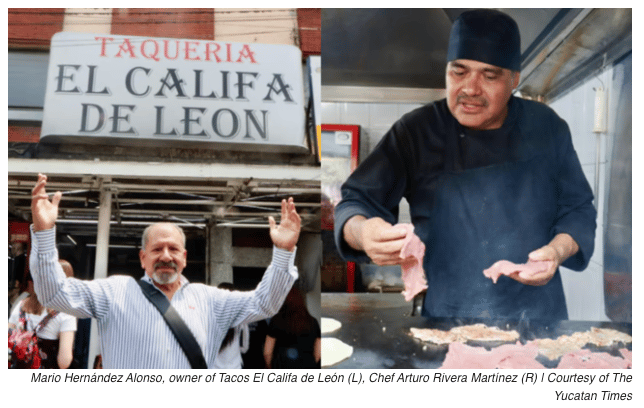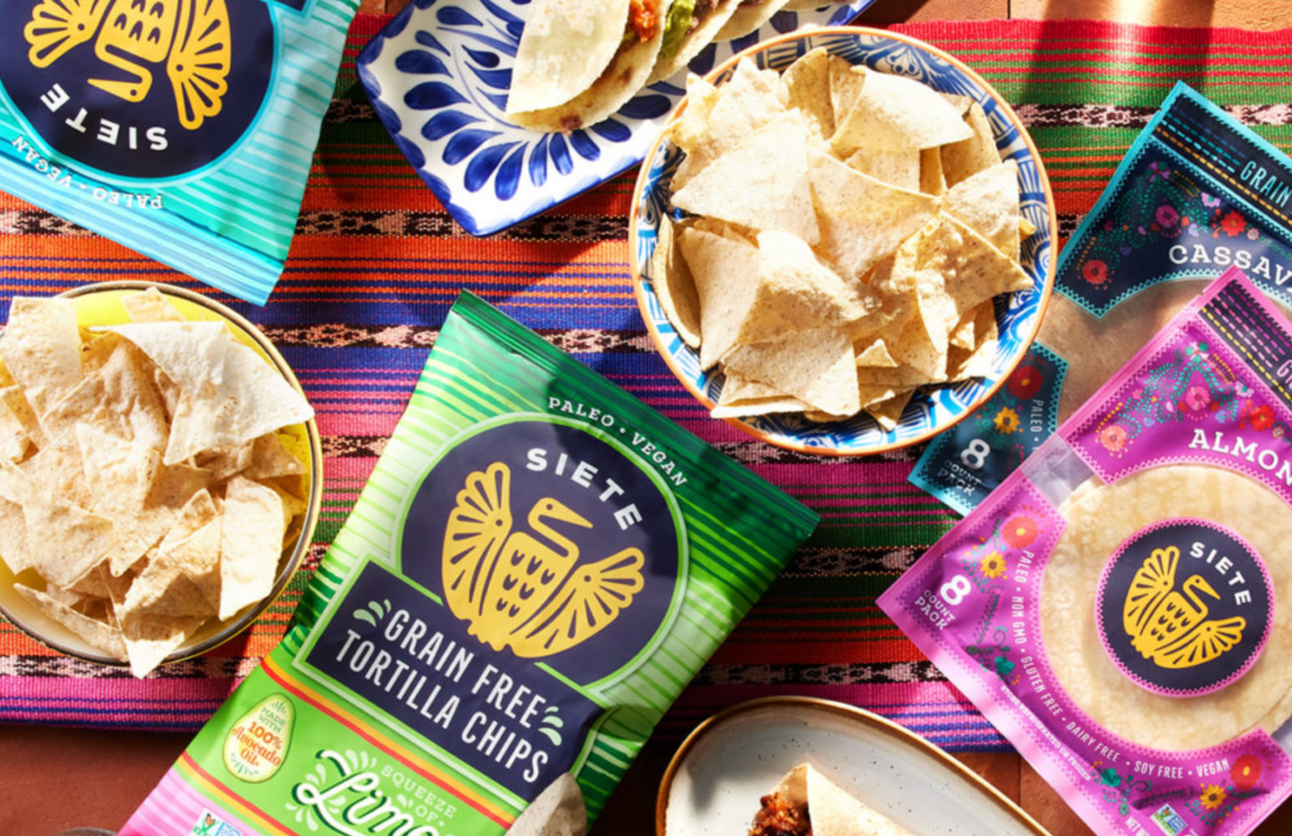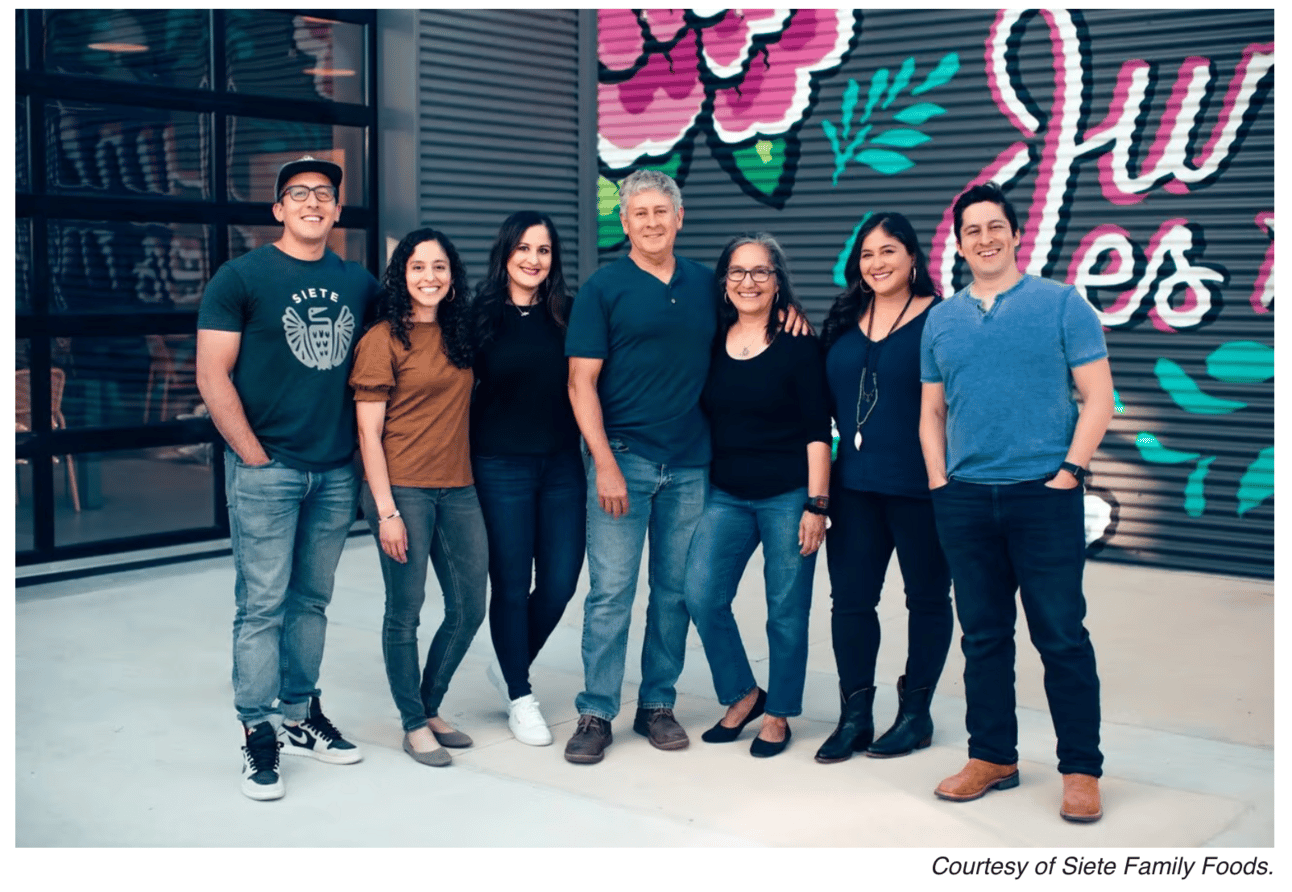BIENVENIDO
¡Saludos! Happy Friday and welcome to the 38th edition of Comprende.
These next few weeks we’re doing a little something different. We’ve had a lot of new readers recently join and in honor of Hispanic Heritage Month, instead of our Core 3 stories, we’re going to revisit and spotlight a few of our past features. Last week, we featured some of our Latino & Latina Founder Stories, which you can read here, and this week we’re highlighting some of our favorite covers on our CULTURA.
Plus in Founder’s Esquinita, learn about one of our previously featured companies, Siete Foods, which announced their expected acquisition by PepsiCo for $1.2 Billion!
So, grab your cafecito or cervecita (depending where you are), settle in, and if you enjoy, please forward the newsletter to friends or share it on social media! ☕️ 🍺
Hispanic Heritage Month: Revisiting CULTURA Features

Mexican Animator Bill Meléndez, The creative force behind A Charlie Brown Christmas & More: Featured in issue 009.

José Cuauhtémoc "Bill" Meléndez, a Mexican-American animator, played a pivotal role in bringing the beloved "Peanuts" characters to life on screen, most famously in the 1965 holiday classic, A Charlie Brown Christmas. Born in Hermosillo, Sonora, Mexico, Meléndez began his animation career at Walt Disney Studios before embarking on a lifelong collaboration with Charles M. Schulz. His direction of A Charlie Brown Christmas introduced new storytelling techniques, including real children's voices and a memorable jazz score, winning both Emmy and Peabody awards. Meléndez's work continues to shape holiday traditions, as he directed over 70 Charlie Brown specials throughout his career.
Isabel Allende: The Pioneering Spirit of Latin American Literature: Featured in issue 017.

Isabel Allende, a trailblazing figure in Latin American literature, has captivated readers worldwide with her blend of magical realism and historical depth. Born in Peru to Chilean parents, her experiences of exile and displacement profoundly influenced her works, beginning with her debut novel The House of the Spirits. Allende's writing, including novels like Of Love and Shadows and Eva Luna, explores themes of identity, politics, and the role of women, drawing from both personal and cultural struggles. With over 77 million books sold, she remains a powerful voice for social change and an enduring icon of literary excellence.
Swinging Against Segregation: The Story of 'The Long Game': Featured in issue 022.

The Long Game tells the true story of a Mexican American high school golf team in 1950s Texas who overcame segregation to win a state championship. Led by Jay Hernandez as J.B. Peña, the film portrays their journey from caddies to champions, despite facing systemic racism. Directed by Julio Quintana, it highlights the resilience and determination of these young athletes. More than just a sports film, The Long Game emphasizes the importance of Latino representation and the ongoing fight for inclusivity in America.
El Califa de León: Tiny Taco Stand Earns Big Recognition with Michelin Star: Featured in issue 028.

El Califa de León, a tiny taco stand in Mexico City's San Rafael neighborhood, made history by earning a Michelin star. Run by Chef Arturo Rivera Martínez, the stand offers a simple menu centered around perfectly grilled beef tacos served on freshly rolled tortillas. Despite its modest size and minimalistic approach, the quality and flavor of the tacos have earned it elite recognition in the culinary world. This achievement celebrates both the craftsmanship of Rivera Martínez and the cultural significance of Mexican street food.
Alessandra Lacorazza: A Queer Latina Filmmaker’s Journey to the Top Prize at Sundance: Featured in issue 020.

Alessandra Lacorazza, a queer Colombian-American filmmaker from Brooklyn, made history by becoming the first Latina to win the Grand Jury Prize: Dramatic and the Directing Award at Sundance for her debut feature In the Summers. The film, exploring themes of migration, alienation, and familial bonds, stars René Pérez Joglar (Residente) alongside Lío Mehiel and Sasha Calle. Lacorazza's work is deeply personal, drawing on her own cultural and queer identity to offer nuanced portrayals of complex human experiences. Her Sundance win represents a milestone for both Latina and queer representation in cinema, signaling the importance of diverse narratives in filmmaking.
PepsiCo to acquire Siete Foods for $1.2 Billion, Bipartisan Legislation Introduced to Help Lower Costs to Small Businesses, plus upcoming opportunities.

Breaking Down an Acquisition: PepsiCo to acquire Mexican-American food brand, Siete Foods, for $1.2 Billion

Photo Courtesy of Siete Foods
Earlier this week PepsiCo announced their plans to acquire Siete Foods for $1.2 billion, with the deal’s full terms expected to close in 2025.
While Siete Foods’ story is no stranger to us at Comprende, with last week’s issue revisiting a spotlight on them, here’s a short recap. Siete Foods was founded in 2014 with the support of the seven Garza family members, a number that made its way into the company’s name, Siete.
Driven by Veronica Garza’s autoimmune conditions and the need for grain-free alternatives, their goal was to make beloved Mexican-American foods accessible for Veronica, and for those with similar health needs. Over the past 10 years, Siete has grown from offering almond flour tortillas to a wide range of Mexican-American staples like refried beans, salsas, and tortilla chips.

Before their acquisition, Siete Foods had hit some remarkable milestones which include:
Revenue projecting to hit $500 million by the end of 2024.
Products sold at 37,000 stores, including Whole Foods, Walmart, and Target.
A thriving E-Commerce presence featuring their wide catalog of products.
In addition to their high popularity with their consumers, Siete also leveraged a few rounds of fundraising for growth, which included a $1 million angel round in 2015, a $90 million round from a growth equity firm in 2018, and this year’s inclusion of Eva Langoria as an investor and advisor to the company.
As for its future with PepsiCo, Miguel Garza, co-founder and CEO of Siete Foods, shared his hope in that, “this next chapter for Siete serves as inspiration for other Latino businesses, showing that it's possible to build a thriving brand that honors our heritage and celebrates our culture."
Bipartisan Legislation Introduced to Help Lower Costs to Small Businesses

U.S. Senator Jeanne Shaheen (D-NH) and Bill Cassidy (R-LA) introduced the bipartisan Helping Small Businesses to Hedge Risk and Insure against Volatile Expenses (THRIVE) Act to assist small businesses in managing the rising costs caused by inflation and market volatility.
This legislation directs the SBA to create a program that allows small businesses to lock in prices for essential commodities like gasoline, diesel, and lumber, providing them with the same financial tools that larger corporations use to hedge against price fluctuations.
By stabilizing these costs, the bill aims to help small businesses better project their operating costs, allowing them to compete more effectively.
Upcoming Events & Opportunities:
Stanley Creator Funds | Apply by October 11
For non-profits, up to $50,000 grants
Pepco x Hello Alice Small Business Grant Program | Apply by October 11
Food or food service businesses in Washington D.C., $74k grant
Halcyon Fellowships | Apply by October 11
For climate and health founders at MVP stage
Mentors & Angels Accelerator | Apply by November 1
For underrepresented founders, free 7-week program
La Esquinita is written by Comprende Collaborator, Adriana Román. Learn more about Adriana or connect with her on LinkedIn here
FOUNDERS:
If you’re a founder who wants to get further connected and learn more about Comprende, be featured in our newsletter or marketplace, or inquire about our creative and strategy agency services, please fill out this form:

How to Make: Ecuadorian Chaulafán

Courtesy of Damián Serrano via Bon Viveur
Here’s a traditional recipe for Chaulafán, Ecuador’s version of fried rice, which is a delicious mix of rice, meats, vegetables, and seasonings:
Ingredients:
2 cups of cooked white rice (preferably day-old)
1 cup of chicken breast, diced
1 cup of shrimp, peeled and deveined
2 eggs, beaten
1 small onion, finely chopped
2 cloves of garlic, minced
1 red bell pepper, diced
1 carrot, diced
1/2 cup of peas (fresh or frozen)
3 green onions, sliced
3 tablespoons of soy sauce
1 tablespoon of oyster sauce (optional)
1 tablespoon of sesame oil
2 tablespoons of vegetable oil (for frying)
Salt and pepper to taste
Fresh cilantro (optional, for garnish)
Instructions:
Prepare the rice: If using fresh rice, cook it according to the package instructions and let it cool completely. Day-old rice works best because it's drier and gives the dish better texture.
Cook the eggs: In a large wok or skillet, heat 1 tablespoon of vegetable oil over medium heat. Add the beaten eggs and scramble them until fully cooked. Remove the eggs from the pan and set aside.
Cook the chicken and shrimp: In the same wok or skillet, add the diced chicken, season with salt and pepper, and stir-fry until fully cooked (about 5-7 minutes). Set aside with the scrambled eggs. In the same pan, cook the shrimp until pink and opaque (about 3-4 minutes), then set aside.
Stir-fry the vegetables: Add the remaining tablespoon of vegetable oil to the wok. Sauté the onions, garlic, carrots, and bell pepper until softened (about 5 minutes). Add the peas and stir-fry for another 2-3 minutes.
Combine and flavor: Add the cooked rice to the wok with the sautéed vegetables, breaking up any clumps with a spatula. Stir-fry for 2-3 minutes to heat the rice through. Add the cooked chicken, shrimp, and scrambled eggs back into the wok, mixing everything together. Pour in the soy sauce, oyster sauce (if using), and sesame oil, stirring well to coat all ingredients.
Final touches: Stir in the sliced green onions and adjust seasoning with salt and pepper as needed. Fry for another 2-3 minutes to allow all the flavors to blend.
Serve: Garnish with fresh cilantro if desired, and serve hot.
Enjoy your Chaulafán with a side of hot sauce or aji for an extra kick!

Last week, we asked: Which Cuban dance became internationally popular in the 1940s and is characterized by fast-paced rhythms?
The right answer was: The Mambo!

Courtesy of Yale Joel via liveabout
The mambo is the Cuban dance that became internationally popular in the 1940s, characterized by its fast-paced rhythms. It was developed from the fusion of Afro-Cuban rhythms and jazz elements, and its lively, syncopated beat made it a sensation in dance halls worldwide, especially in places like New York and Mexico City. The mambo's energetic and intricate footwork, combined with vibrant music, contributed to its global appeal during that era.

Question: Which country has produced seven Miss Universe winners, making it one of the most successful nations in the history of the competition?
Reply with your guess! Answers will be revealed in the next newsletter!

Enjoyed today’s comprende newsletter? Please share it with family, friends, and Latino-business owners using the link below.
https://comprende.carrd.co/

